Coronavirus PAEC: ‘Will you demand your ministers resign?’
Daniel Andrews has been pinioned on failures by his parliament at an inquiry into Victoria’s handling of the virus pandemic.
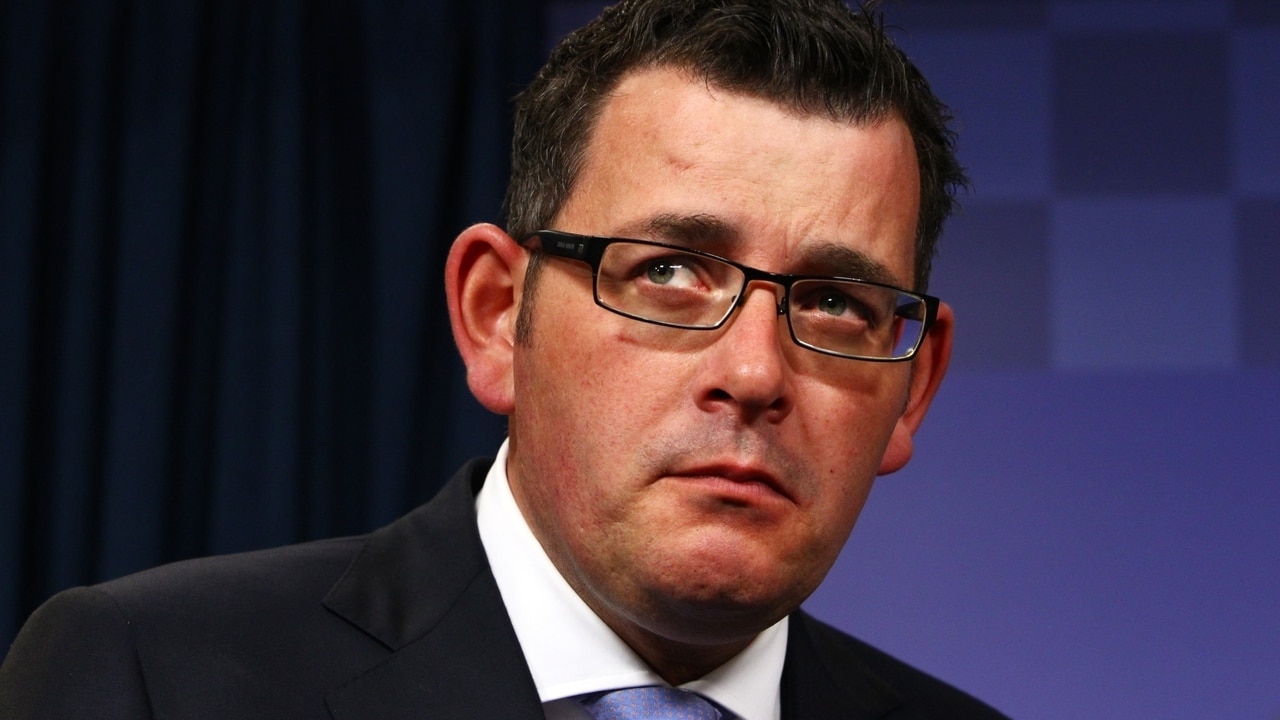
The Victorian parliamentary inquiry into the state’s handling of the coronavirus has opened with a fiery clash between Daniel Andrews and Liberal MP Richard Riordan as Mr Riordan grilled the Victorian Premier on the hotel quarantine fiasco.
Mr Andrews is appearing in front of the state parliament’s Public Accounts and Estimates Committee, on Tuesday alongside his departmental secretary Chris Eccles and deputy secretary for economic policy and state productivity Tim Ada.
Health Minister Jenny Mikakos was due to appear at 11.15am alongside members of her department including Chief Health Officer Brett Sutton, his deputy Allen Cheng, and departmental secretary Kym Peake.
The inquiry is expected to focus on the state’s trouble-plagued hotel quarantine policy, the Herald Sun reports.
After an opening statement by Mr Andrews regarding the gradual improvement in Victoria’s daily coronavirus numbers, Mr Riordan asked Mr Andrews about an article in today’s Herald Sun which reveals that Department of Jobs Precincts and Regions bureaucrats with no public health experienced were tasked with setting up the hotel quarantine program in little more than 24 hours.
“Premier, you have, every day, thanked Victorians, and every day, you have admonished Victorians who have not done the right thing,” Mr Riordan began.
“Premier, every day, you have assured us you will take responsibility, personal responsibility, and own the mistakes of your government.
“Every day, you have refused to tell the Victorians, which of your ministers was responsible for letting the virus out of hotel quarantine.
Pakula blamed for fiasco
“This morning, the Herald Sun has revealed what you have been hiding from Victorians. Your Minister Jobs (Martin Pakula) was responsible for bungled hotel quarantine. Will you demand that he resign?”
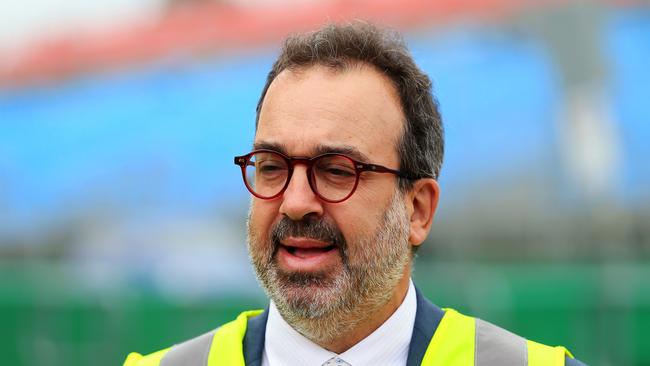
Mr Andrews’s response was initially too quiet to be heard, due to technical issues.
“Let me just repeat what I said,” the Premier continued.
“The answer to your question is no. And don’t take anything that I say in my answer as in any way me confirming the rather lengthy editorial that you’ve just given me.
“I’d say that a judicial inquiry has been established, not for the avoidance of transparency …”
Mr Riordan interjected to clarify that retired judge Justice Jennifer Coate’s probe is a board of inquiry, and not a judicial inquiry.
“You’ve been advised by the chairperson it’s not a judicial inquiry. For the record, please be honest with Victorians. It’s not judicial,” Mr Riordan said.
“As I was saying, former judge Coate is running an inquiry,” Mr Andrews continued.
“She’s a former judge. I wouldn’t have thought there was a dispute about that. It’s an inquiry set up under the act of Victorian Parliament.
“It has broad terms of reference, a substantial budget and it will get us the answers that are required.
“Those answers are to a number of different questions, fundamentally related to any and all deficiencies in the management of this and exactly what circumstances have led to, as genomic sequencing confirms for us …”
Mr Riordan again interrupted.
“Premier, the question was will you ask the minister to resign?”
Mr Andrews replied: “I answered your question.”
‘You make resignations happen when they’re your enemy’
Mr Riordan then moved on to Mr Andrews’ haste in forcing his former ministers Adem Somyurek, Marlene Kairouz and Robin Scott to resign over branch stacking allegations, comparing that situation with those of a minister or ministers responsible for hotel quarantine.
“Premier, within 24 hours of an expose on TV about your factional enemies in your cabinet, you had them resign in 24 hours,” Mr Riordan said.
“We’ve seen an expose of clear failure of ministerial responsibility and you won’t have that minister resign.
“What do you say to Victorians as to why you can make resignations happen when they’re your political enemies but, when they’re in your cabinet, you won’t force them to resign?”
Mr Andrews responded: “Mr Riordan, the only enemy that every single Victorian confronts is this wildly infectious virus.
“I’m not interested in playing political games with this,” Mr Andrews said.
“I don’t think there’s any comparison between the events you’ve quoted.
“We are all working as hard as we can to fight a wicked enemy. That’s the enemy I’m exclusively focused on.”
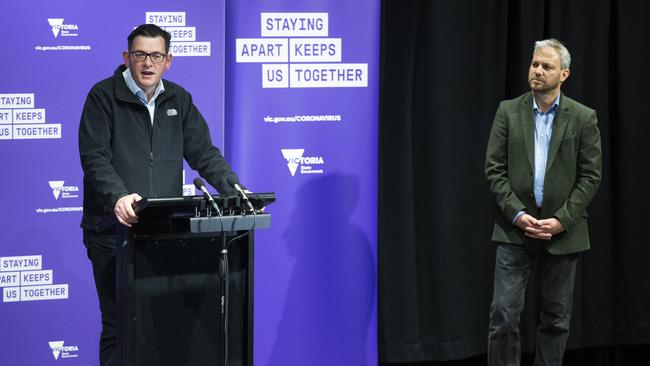
Mr Riordan then moved on to Chief Health Officer Brett Sutton’s comments last month that it was possible that all of Victoria’s second wave of coronavirus could be linked to hotel quarantine breaches.
Mr Andrews has himself conceded that “at least a significant proportion” of Victoria’s second wave is linked to hotel quarantine breaches.
“Premier, your Chief Health Officer says genomic sequencing confirms that the Victorian second wave has come from the minister’s (Martin Pakula’s) failed hotel quarantine, a point you have conceded yourself on numerous occasions,” Mr Riordan said.
“Because of this, hundreds of thousands of Victorians have lost their jobs and businesses, and thousands of family members have lost loved ones.
“Victorians have trusted you to keep them safe. You have catastrophically let them down. Will you apologise to Victorians?”
Mr Andrews said: “As I’ve said, Mr Riordan, I’m the leader of the government and the leader of the state and I take responsibility for all of the decisions that are made across our government and the performance of all of our agencies.”
“That ultimate responsibility is an important function of the job that I have, the great honour that I have to serve as the Premier of this state.
“I don’t agree with the way you have characterised various statements that the Chief Health Officer has made.
“Having stood beside the Chief Health Officer on the morning where genomic sequencing, a match of genomic sequencing had been received and the results had been appropriately analysed, both I and the Chief Health Officer – this is not a matter of dispute – indicated that at least a significant number – at least – and it may be more – there is further genomic sequencing, there’s always trials because it’s a longer process and more involved process than simply determining whether someone is positive or negative …”
Mr Riordan asked Mr Andrews whether he was saying that he did not have information about whether or not all of Victoria’s second wave is genomically linked to hotel quarantine.
“That’s not what I’m saying at all,” Mr Andrews said.
“What I’m saying to you, Mr Riordan, is there is some genomic sequencing that has been (linked).
“It could be a higher percentage than this but the phrasing, the way that the Chief Health Officer has described it and so, too, have I, ‘at least a significant portion of new cases’ and the resultant second wave (is) attributable to the spread of the virus out of the hotel quarantine system – that’s beyond doubt and no one is quibbling with that.
“On the issue of the availability of further genomic sequencing, I would direct you to the Chief Health Officer.”
‘What does personal responsibility mean?’
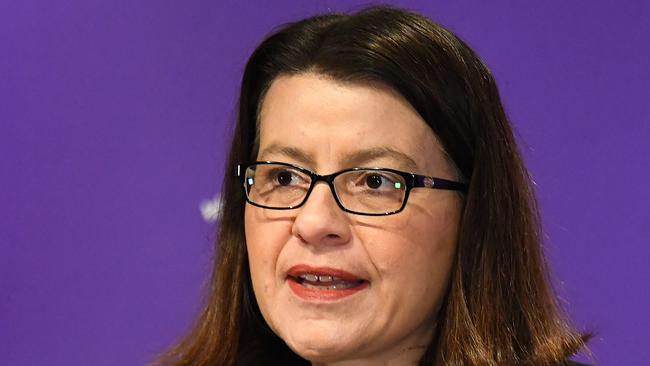
Mr Riordan then moved to reports Health Minister Jenny Mikakos was warned as early as May 11 about insufficient infection control measures in hotel quarantine.
The first COVID-19 case in a security guard at the Rydges on Swanston quarantine hotel was made public on May 27.
“On your government’s own figures, this complete failure of government policy will surely be the most disastrous economic and social catastrophe in Victoria’s history,” Mr Riordan said.
“How will you take personal responsibility for this? You’ve told us on numerous occasions you will be personally responsible. What does personal responsibility mean?”
Mr Andrews said he would not be “playing political games”.
“Mr Riordan, perhaps you and I have a different view as to the responsibilities of my office,” he said.
The Premier listed things he says he’s doing with regard to managing the COVID-19 pandemic, including making sure healthcare workers have resources and support.
“Accountability is obviously a function of my role,” Mr Andrews said.
“That’s the job that I have. In terms of my responsibilities and the things that I ought to be focused on and which I am exclusively focused on, I’ve listed some of those.”
Mr Riordan interjected.
“But, Premier, Premier, after a month of acknowledging failures in hotel quarantine, nothing has been seen, no admissions by you have been made, no acknowledgment of the error has been made by you,” he said.
“Today, all Victorians … have seen … how your government has run hotel quarantine and you have nothing to comment about who is accountable and who is responsible for that.”
Mr Andrews hit back.
“I’ve said no such thing. Your analysis is completely inaccurate. I have not only accepted ultimate and accountability for any issues in that part of our pandemic response and all issues in our pandemic response, but I’ve established an appropriate arms-length process chaired by a former judge, not for the avoidance of scrutiny … but to deliver that scrutiny and to provide the answers that all of us are fundamentally entitled to.”
‘Did you think quarantine would be better run by people who fix roads?’
Mr Riordan asked his final question.
“Did you, or did the crisis cabinet think hotel quarantine would be better run by people who fix roads and run an art gallery than your own health department?” he asked, with reference to private security guards.
“The answer to your question is no,” Mr Andrews said.
“At no point did people make a decision like that.
“Across the board people are performing roles and functions that are a long way away from what they might traditionally be expected to do.”
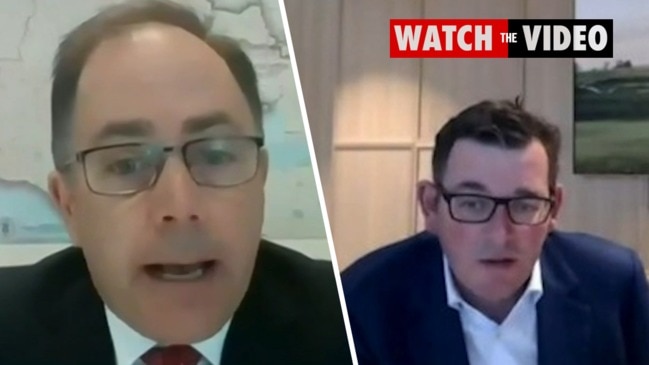
Greens MP grills Andrews on Flemington Towers
Greens MP Sam Hibbins quizzed the Premier on the lockdown of public housing towers in Flemington and North Melbourne in Melbourne’s inner northwest.
It was the harshest lockdown in any democracy in the world, but it did succeed in limiting the spread of the virus in the towers, which house some of Victoria’s most vulnerable people.
“When you announced the lockdown on Saturday 4 July at around 4.20, you stated that residents would be supported with onsite clinical care as well as food delivery and care packages,” Mr Hibbins began.
“Then, five hours later, at around 9.30, you said, ‘We’ll provide everything residents need during this period from food to medical supplies, toys to toiletries. No-one will go without. No-one will be left alone.’
“Well, it turns out people did go without and people were left alone.”
Mr Hibbins reeled off a list of examples, including:
- “A woman who couldn’t get clean insulin needles for her diabetic child and after several days of calling the hotline, had to wash and reuse needles for her child.”
- “An elderly diabetic woman who had carers come and cook for her every day had her carers removed and despite her family repeatedly calling the hotline, no care was provided for three days until she was delivered in the food.”
- “A woman with a premature baby in intensive care in hospital was left for several days without anyone coming to collect expressed breast milk for her baby”
- “A woman who was denied a mental health check after threatening self-harm.”
Mr Hibbins said there were “dozens of cases” of people left without food, medication, mental health support, nappies and baby formula.
“These arrived late, or not at all, over the five days. Can I ask on what basis did you make the statement that no-one would go without?,” he asked.
“And when you announced the lockdown, was there a plan in place to deliver appropriate food, medicine and other essentials?”
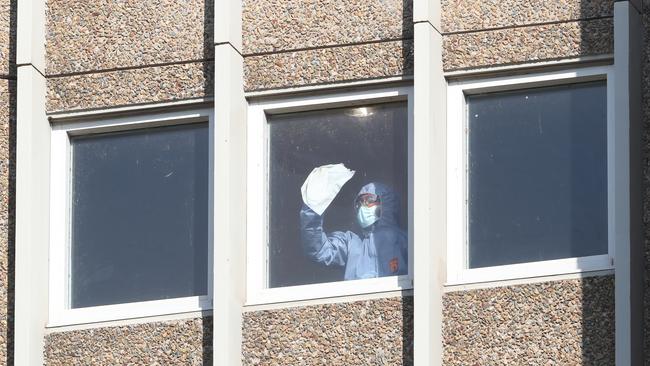
Mr Andrews began his answer by explaining the need for the lockdown.
“If we don’t lock down those nine towers, we will see this run wild throughout the entire community,” he said.
Mr Hibbins said he was not questioning the lockdown.
“It’s important that I give you some context for this and that’s what I’m attempting to do,” Mr Andrews said.
“There’s no alternative but to accept the advice of the Chief Health Officer and part of the advice of the Chief Health Officer was to have an immediate lockdown - not a lockdown three days hence when you’d had the benefit of many, many hours to provide additional planning.”
Mr Hibbins asked what time Mr Andrews had received the CHO’s advice.
“I had a press conference in the middle of the afternoon, I think perhaps around, it could have been late at 2:30, 3:00,” Mr Andrews said.
“We had been in discussions with the Chief Health Officer throughout the late morning through lunchtime and into the early hours of the morning.
“I’m happy to come back with some more definitive - it was some time ago - some definitive times, but it was in the two to three hours before we made the announcement (that) it had been confirmed by the public health team that there was simply no alternative to lock those towers down.
“To your question, this has never occurred before. There’s no manual or play book or anyone you can go to and say, well, given your experience in doing things like this, can you provide me with some advice on how I might do it?
“Now, was every element of that response perfect? Well, what I say to you is of course it wasn’t, nor could it have been.
“But everybody from local community health providers to other organisations that were engaged to providified to nursing staff, testing staff, emergency services staff, including Victoria Police, social workers, mental health practitioners, the list goes on and on, a massive team, stood up as quickly as possible to meet the needs of a very diverse and a particularly vulnerable group of people.”
‘You will see the challenge we faced’
Mr Andrews said it was more important to ensure the virus did not spread than to ensure people didn’t have to wait five hours for food.
“The ultimate vulnerability here was not whether somebody got fed within five hours or whether they had to wait until the following day to get a bag of groceries, the ultimate vulnerability here, Mr Hibbins here, if I might say, was this thing infecting everyone in those towers and hundreds of people dying,” he said.
“I think if you reflect on that issue, I think you see the challenge that we faced and the fact that no matter what we did, no element of this could be made perfect.
“The criticism of people who worked their guts out on the ground, they did their very best, Mr Hibbins and I think it’s wrong to suggest otherwise.”
Mr Hibbins said he was not suggesting otherwise.
“What I am suggesting, Premier, is there’s a long way between something not being perfect and something not being managed well from the start.
“Do you accept that there was a clear inconsistency between the public statements that you made that essentially said that no-one would go without, and what was in fact actually happening on the ground, where people did go without?”
Mr Andrews said the towers lockdown was clearly a “very big challenge”.
“But not providing people with a bag of groceries, or, indeed, dealing with the many, many complex circumstances ... or the mother of the newborn at the Royal Children’s Hospital that you referenced, of course we would have liked to have had that mother with her newborn baby,” he said.
“That is exactly what you would always want to have happen and I’ve spent a good portion of my working life trying to grow support in maternity and particularly neonatal intensive care services.
“You’d want those two, the mum and bub, together, but that was not possible. That was not possible, and I suppose in order to try and provide general support - food and other welfare - there will have been specific examples of a very well defined need that may not have been met.
“No-one is pleased to think that anybody had to wait longer than you would like for the things that they needed, of course not, but the ultimate test, I think, is to compare the discomforts, the displeasure, and the real challenge, the whole challenge, the hardship of having to wait for some things, that needs to be compared not with what might be termed a perfect response, because I don’t know if there could be one, but compare and contrast...”
Mr Hibbins interjected: “Again, Premier, I’m not questioning the decision of the hard lockdown. I was questioning the discrepancies between your statements and what was actually occurring.”
The Greens MP moved onto another question about how soon the State Control Centre and City of Melbourne were called in as disaster management experts after the decision to lock down the towers was made.
“Can I ask why was the State Control Centre called in after several days and why weren’t they called in from the very beginning?” Mr Hibbins said.
Mr Andrews responded: “This could not be done with a three day lead-in, this could not be done with the notice that you would obviously prefer if you were not in the midst of a global pandemic, if you were not in the midst of unprecedented circumstances.
“None of us have the benefit ... either of hindsight or the benefit of a long lead-in.
“This was urgent advice to lock these towers down urgently and what occurred, what I can tell you occurs, is in every agency and every person tasked with that fund amount responsibility of caring for those residents worked as
hard as they possibly could, day and night. and ultimately we were able to limit the spread of the virus and limit the number of deaths and other life-long chronic health conditions, as a result of that intervention.”
Who decided on security guards for hotels?
Nationals MP Danny O’Brien began his round of questions by asking the Premier who made the decision to use private secure guards in the hotel quarantine program.
Mr Andrew said national cabinet had approved the rollout of a hotel quarantine system for returned travellers on March 27.
“That was to be stood up by midnight - that was a Friday - midnight the following night, being midnight the Saturday night,” the Premier said.
“We had already begun a process of engaging with hotels, using private security and others to support health workers who needed to isolate, to support vulnerable members of the Victorian community who needed to isolate.
“In many respects, the hotel quarantine system simply became an extension of previously agreed processes, so a service, if you like, that was already on the ground and running, the ultimate arrangements for hotel quarantine - so firstly, that it should happen - that’s national cabinet.
“Then the Victorian cabinet approves a set of arrangements and then they are implemented and delivered by officials and others at a very local level, because this is ultimately about the care and support of people, individual by individual, family by family.”
Mr O’Brien asked Mr Andrews to clarify whether he was saying Victoria’s full cabinet or its crisis council of cabinet was responsible.
“Oh, sorry. Crisis council,” Mr Andrews said.
“Why was the decision made to use security guards as opposed to police or ADF oversight?” Mr O’Brien asked.
“Well, in terms of the ultimate answer as to the desirability, effectiveness or otherwise, to all these arrangements, there is another process to deal with that,” Mr Andrews said, referring to Justice Coate’s inquiry.
“The process I’m referring to is not set up to avoid answering questions. It’s to get us answers and if, clearly, this system has not worked as it should have, it is unclear to me exactly where the origin and nature of some of those deficiencies and failures are, so we have sought a separate process so as not to mark our own paper, as it were, but instead to have others look at that in detail.
“In terms of the arrangements, our crisis council of cabinet funded and endorsed a program.
“The program is then delivered at a local level by a big team, a team that was able to I think provide support and quarantine for in excess of 20,000 people.
“The exact nature of security arrangements, their adequacy or otherwise, that is appropriately a matter for the judge to look at.”

Andrews deflects questions on ADF
Mr O’Brien moved on to Mr Andrews’s request to the federal government on June 24 for 850 ADF personnel “to specifically assist with compliance and monitoring support at hotel quarantine.”
“Within 24 hours, it was withdrawn. Why was that?” Mr O’Brien asked.
“Well, there are many different requests that go to the commonwealth,” Mr Andrews said.
“I think it’s important to acknowledge that we’ve gone to what’s called an open request model.
“If you don’t do that, if you don’t have essentially an open dialogue and an ability to add, subtract, change, modify requests, then every time you make even the most minor change, you’ve got to replicate all the requests.
“It’s an ADF thing and it’s there to make sure that everybody is clear on what’s needed and everybody’s clear on what’s coming.
“The open request model means that we can, without having to replicate the entire process, without a sense that - well, I’ll ask for more than I need.”
Mr O’Brien interjected.
“Premier, my time is limited. Can you get to answering the question, please?” he asked.
“I’m asking you about a specific request for 850 specific ADF and why it was withdrawn?”
Mr Andrews said the request had not been made by him or by his crisis cabinet.
“The request for defence force personnel, there have been many of them and they’ve been met.
“The question you’re referring to, you’d need to speak to the person who made that request because it was not made by anybody in a position of authority.”
Mr O’Brien interjected: “I understand that it was made by the Emergency Management Commissioner (Andrew Crisp)”.
“When he appears before you, you can speak to him,” Mr Andrews said.
“Do you still have full confidence in the Commissioner?” Mr O’Brien asked.
“Absolutely,” Mr Andrews replied.
“Do you regret the decision to employ private security guards in hotel quarantine?” Mr O’Brien Asked.
“What I’d say to you is, no-one wanted a second wave of the virus,” Mr Andrews said.
“But none of us have the luxury of going back in time. None of us have the luxury in pretending that the challenge that we’re facing is something that we’ve ever faced. That’s what I’m focused on.
“There are answer that are needed and that’s why a separate process has been set up to get the answers.”


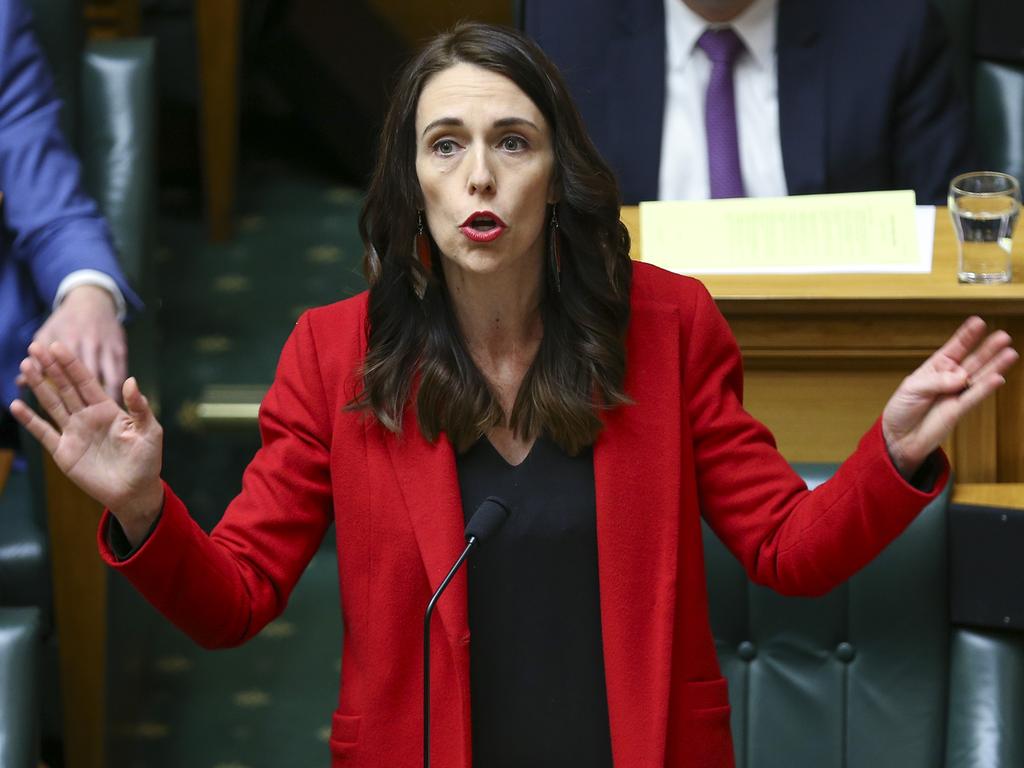

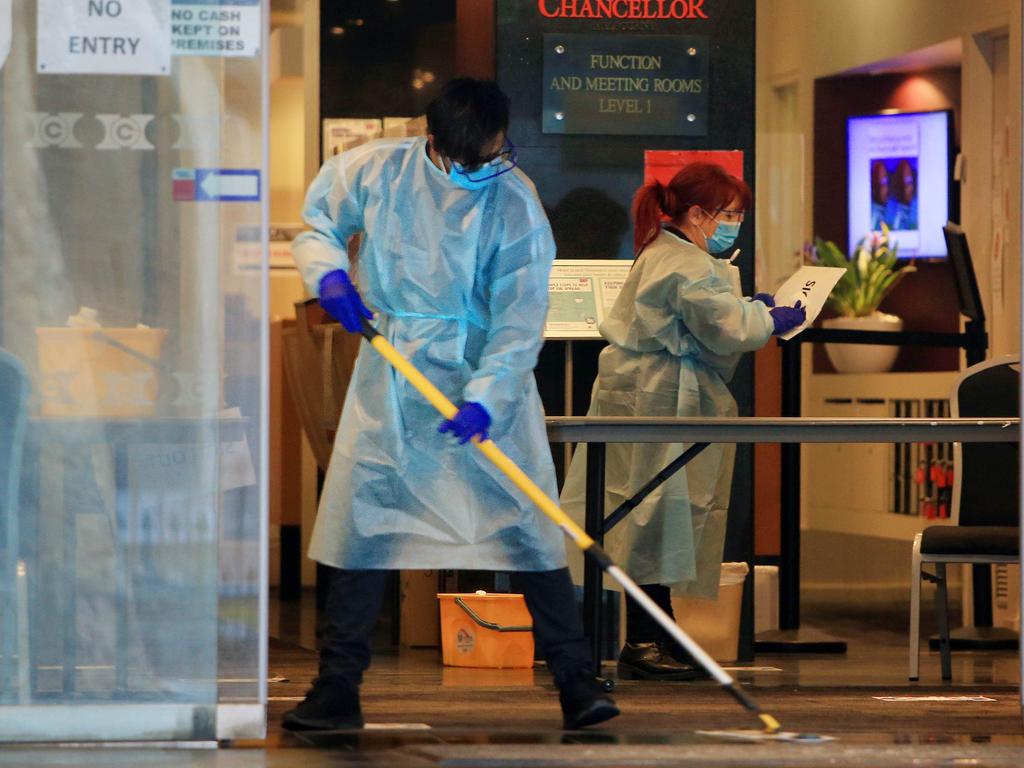

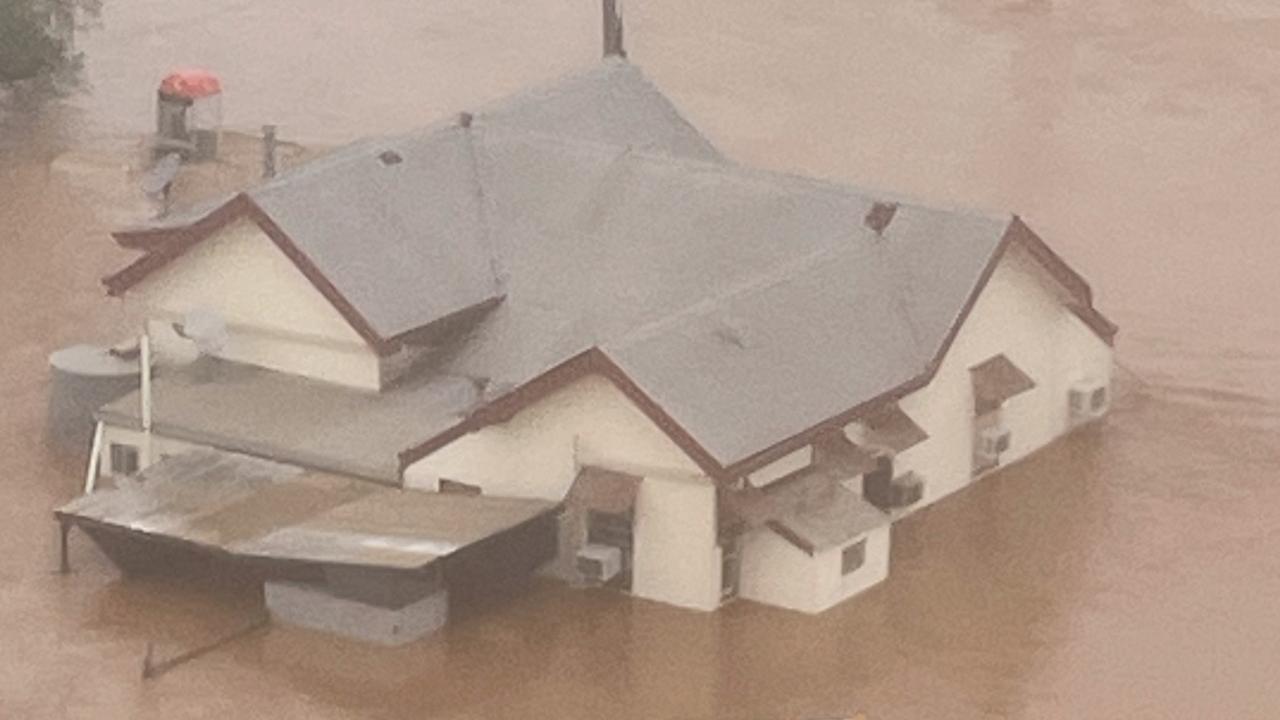
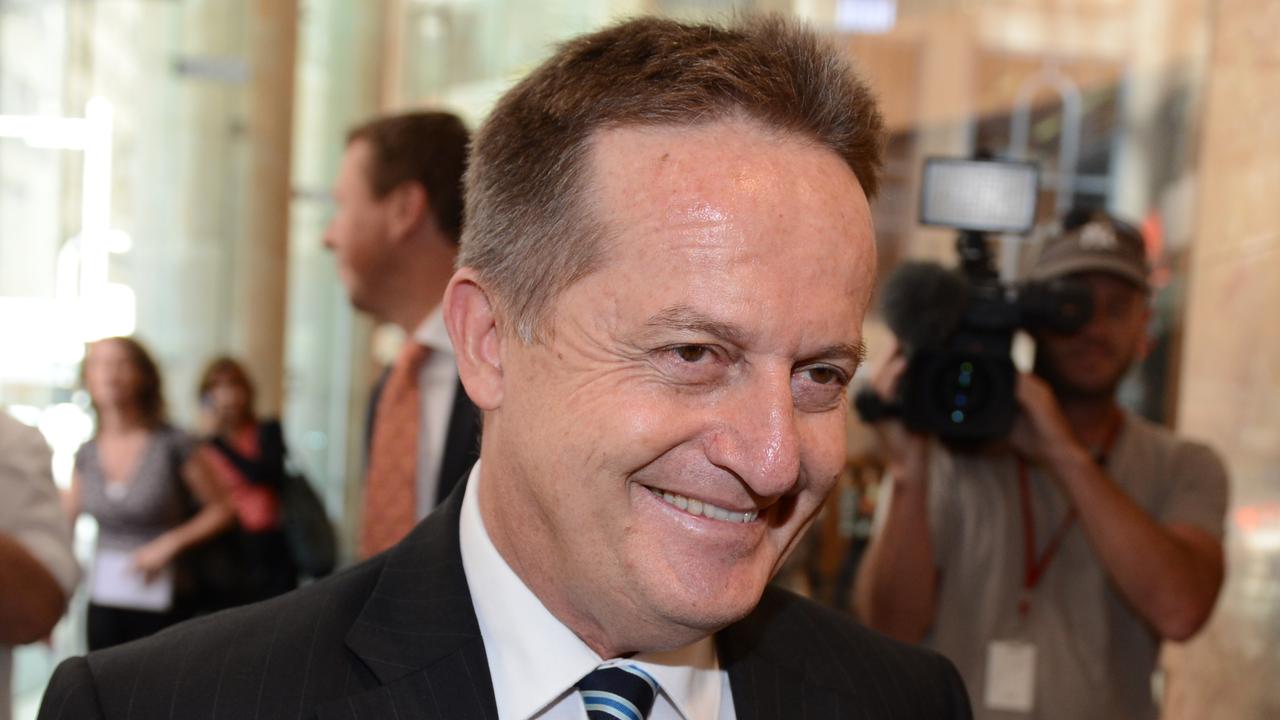
To join the conversation, please log in. Don't have an account? Register
Join the conversation, you are commenting as Logout